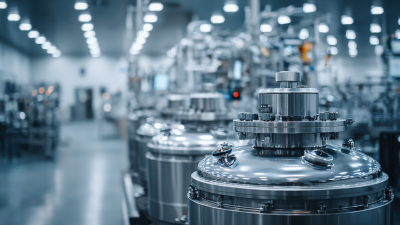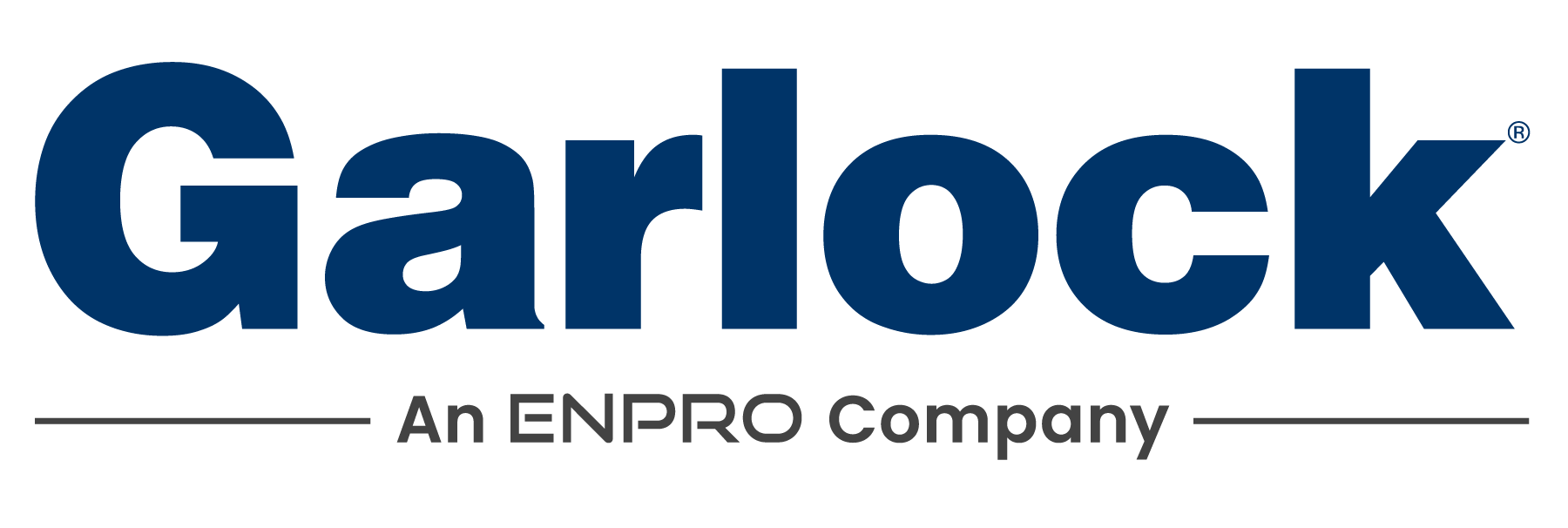Maximizing Efficiency in API Manufacturing with Digital Strategies and Key Industry Insights
In recent years, the pharmaceutical industry has witnessed a significant transformation driven by digital strategies aimed at maximizing efficiency in API manufacturing. According to a report by Grand View Research, the global active pharmaceutical ingredients (API) market is expected to reach $281.3 billion by 2027, growing at a CAGR of 6.5% due to increased demand for innovative drugs and biopharmaceuticals. As manufacturers strive to enhance their production processes, integrating digital technologies has emerged as a key strategy. By leveraging advanced analytics, automation, and IoT, companies can optimize their operations, improve product quality, and reduce time-to-market.

Additionally, industry insights reveal that organizations adopting digital solutions in API manufacturing can achieve up to a 30% reduction in operational costs. This blog will explore how these digital advancements are reshaping the landscape of API production, providing valuable insights for industry stakeholders looking to stay competitive in an ever-evolving market.
Understanding the Current Landscape of API Manufacturing and Its Challenges
The current landscape of Active Pharmaceutical Ingredient (API) manufacturing is characterized by rapid technological advancements and increasing regulatory demands. As pharmaceutical companies strive to meet the growing global demand for affordable and effective medications, they face several challenges that hinder operational efficiency. These include managing complex supply chains, ensuring compliance with stringent regulations, and navigating the ever-evolving market dynamics.

One significant challenge is the integration of digital strategies into traditional manufacturing processes. Many API manufacturers are still reliant on legacy systems that limit their ability to adapt to new technologies. By embracing digital transformation, companies can streamline their operations, improve data management, and enhance product quality. Technologies such as artificial intelligence and automation not only reduce production costs but also provide valuable insights that help in forecasting demand and optimizing inventory levels.
Moreover, staying informed about key industry trends is crucial for success in API manufacturing. The rise in personalized medicine and the emphasis on sustainability are reshaping production methods and supply chain management. Manufacturers who proactively address these trends will not only overcome current challenges but also position themselves for future growth in an increasingly competitive landscape.
Implementing Digital Tools for Enhanced Automation and Process Optimization
In the rapidly evolving landscape of API manufacturing, the integration of digital tools is not just an advantage but a necessity for achieving enhanced automation and process optimization. According to a recent report by MarketsandMarkets, the global market for digital transformation in manufacturing is projected to reach $766.5 billion by 2026, reflecting the critical role these technologies play in modern production environments. By leveraging advanced digital solutions such as AI-driven data analytics and IoT-enabled machinery, manufacturers can streamline supply chain processes, reduce operational costs, and improve product quality.
Moreover, automation technologies have shown to increase productivity by up to 30%, as highlighted in a study by McKinsey & Company. This improvement stems from reduced manual intervention, allowing skilled workers to focus on more complex tasks that necessitate human expertise. In API manufacturing, where precision and regulatory compliance are paramount, the introduction of automated workflows not only enhances efficiency but also mitigates the risk of human error. The ability to monitor real-time data from production lines empowers manufacturers to quickly respond to disruptions, ultimately leading to optimized operations and faster time-to-market for pharmaceutical products.
Integrating Data Analytics for Better Decision-Making in API Production
In the rapidly evolving landscape of Active Pharmaceutical Ingredient (API) manufacturing, integrating data analytics has become crucial for enhancing decision-making processes. According to a recent report by MarketsandMarkets, the global analytics market in the pharmaceutical sector is expected to reach $7.3 billion by 2025, representing a CAGR of 21.2%. Leveraging this technology enables manufacturers to fine-tune their operations, reduce costs, and enhance product quality by providing actionable insights based on real-time data analysis.
To maximize efficiency, companies should consider implementing advanced data analytics tools. One effective strategy is to adopt predictive analytics that forecasts equipment failures and optimizes maintenance schedules. This proactive approach can reduce downtime by up to 30%, according to Deloitte’s analytics report. Additionally, real-time monitoring of production processes can help identify bottlenecks and improve workflow efficiency significantly.
Another tip is to harness artificial intelligence (AI) for analyzing large datasets. AI algorithms can uncover hidden patterns in production data, leading to improvements in batch consistency and yield rates. A study from Accenture suggests that organizations using AI in their manufacturing processes experience a 20% increase in operational efficiency. By integrating these data-driven strategies, API manufacturers can ensure they remain competitive in a dynamic market while making informed decisions that drive growth and innovation.
Maximizing Efficiency in API Manufacturing with Digital Strategies and Key Industry Insights
| Data Dimension | Value |
|---|---|
| Overall Equipment Efficiency (OEE) | 85% |
| Average Production Cycle Time | 28 hours |
| Yield Rate | 92% |
| Average Downtime | 6 hours/month |
| Cost of Goods Sold (COGS) | $500,000/month |
| Data Utilization Rate | 75% |
| Employee Training Effectiveness | 88% |
| Customer Satisfaction Score | 90% |
Case Studies: Successful Digital Strategies in Leading API Manufacturers
The pharmaceutical industry is rapidly evolving, and leading Active Pharmaceutical Ingredient (API) manufacturers are increasingly adopting digital strategies to enhance their operational efficiency.
Case studies highlight the transformative impact of these digital initiatives. For instance, a prominent API manufacturer implemented a cloud-based data analytics platform that enabled real-time monitoring of production processes. This shift not only minimized downtime but also improved the quality control measures, resulting in a significant reduction in batch rejections and an increase in overall yield.

Future Trends: The Role of AI and Machine Learning in API Manufacturing Efficiency
The rapid evolution of Artificial Intelligence (AI) and Machine Learning (ML) is reshaping the landscape of Active Pharmaceutical Ingredient (API) manufacturing. According to a recent report from MarketsandMarkets, the AI in the healthcare market is expected to reach $45.2 billion by 2026, growing at a CAGR of 44.9%. This surge is largely driven by the ongoing need for increased efficiency and reduced production costs. In API manufacturing, AI and ML algorithms can analyze vast amounts of data to optimize processes such as chemical synthesis, thereby minimizing waste and streamlining operations.
Moreover, the integration of AI technologies enhances predictive maintenance, reducing downtime in manufacturing facilities. A Deloitte study revealed that predictive maintenance can reduce maintenance costs by 10-30% and improve equipment uptime by 10-20%. These advancements enable manufacturers to be more proactive, anticipating potential issues before they impact production schedules. By leveraging AI and ML for real-time data analysis, API manufacturers can achieve unparalleled efficiency and adapt to market demands more effectively, ultimately leading to faster time-to-market for new pharmaceuticals.
Maximizing Efficiency in API Manufacturing with Digital Strategies
This bar chart illustrates the projected efficiency improvements in API manufacturing over the years, showcasing the impact of digital strategies, AI, and machine learning on the industry.
Related Posts
-

The Ultimate Guide to API Manufacturing: Unlocking Efficiency in Pharmaceutical Production
-

Unlocking the Advantages of API Manufacturing for Enhanced Product Quality
-

The Future of API Manufacturing Innovations Driving Global Supply Chain Efficiency
-

Ultimate Guide to Selecting the Best Pharmaceutical Processing Equipment for Your Needs
-

How to Choose the Right Pharmaceutical Solutions for Your Business Needs
-

10 Essential Insights for Pharmaceutical Manufacturing Success
